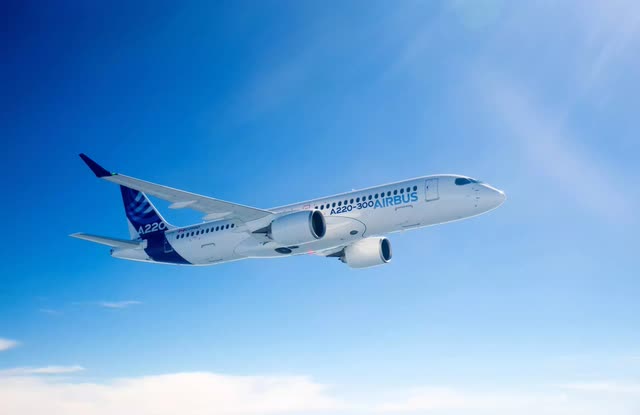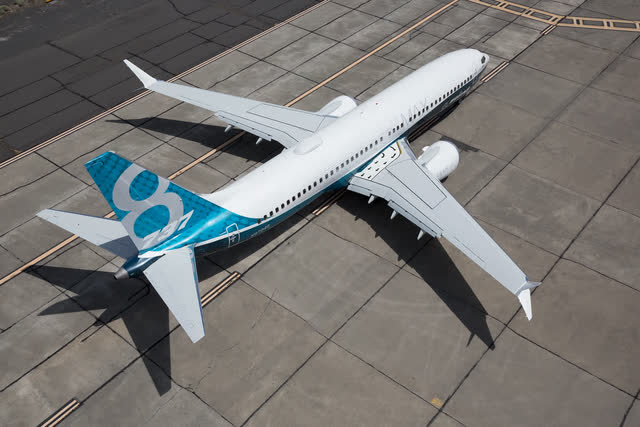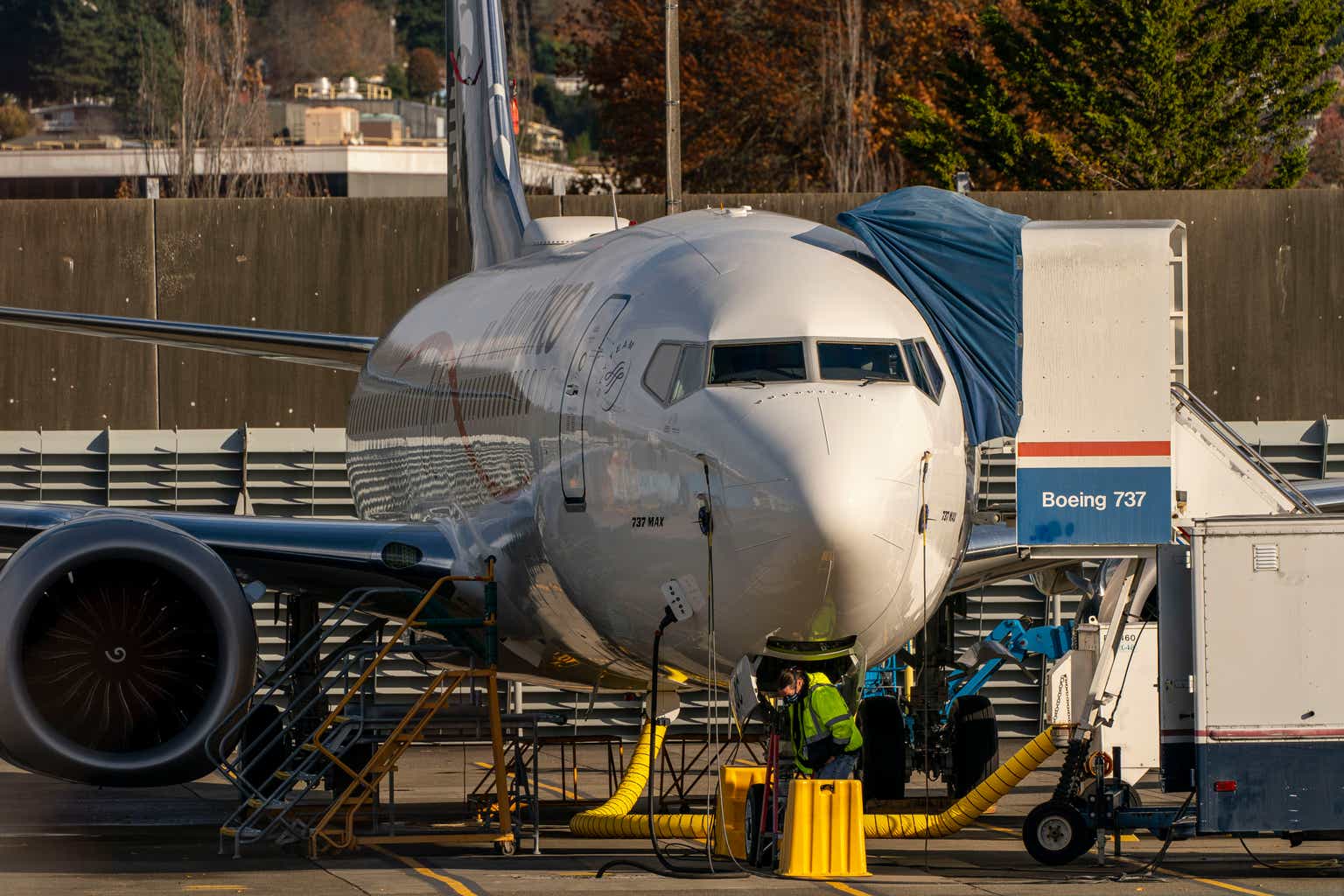At the time of writing, Spirit AeroSystems (NYSE:SPR) stock is trading more than 8% higher following speculations that activists could push for a deal with Boeing. In this report, I will look at this from multiple angles namely as an investor in Spirit AeroSystems, Airbus (OTCPK:EADSF) and Boeing (BA) and explain why I don’t believe this is a good idea.
How Did Boeing Come Into The Picture?
Boeing recently suffered another setback on the Boeing 737 MAX due to improper installation procedures used for the vertical stabilizer at Spirit AeroSystems. The issue, once detected, triggered delivery delays to Boeing and a slowdown in Boeing 737 MAX production as conforming fuselages needed to be fed into the systems and existing fuselages at Boeing’s facility and Spirit’s facility in Wichita needed to be checked. Separately, in-service airplanes will also require a check once maintenance is due. The issues are hurting the delivery outlook for fuselage deliveries to Boeing this year and triggered the company seek additional liquidity from customers including a $180 million payment from Boeing.
With Boeing on more than one occasion providing liquidity to Spirit AeroSystems, during the first quarter earnings call, an analyst asked how management would respond to a possible buyback of Spirit AeroSystems.
The answer from management left a lot of room for interpretation that the company is quite willing to sell itself to Boeing:
Well, I will have to leave that to Boeing to respond to. We’re a public company. People can make offers for public companies and we would respond to those things. I have no idea what Boeing’s plans are related to something like that.
Within the industry and analysts following the industry this idea has boiled up several times already, but it hasn’t happened in a spotlight such as an earnings call before and that has fed the idea of Boeing buying back Spirit AeroSystems ever since.
Why Boeing Should Not Buy Back Spirit AeroSystems
We cannot deny that Spirit AeroSystems has a lot of issues to solve, but for me as a shareholder of Spirit AeroSystems, a purchase by Boeing would be undesired. Since I marked Spirit AeroSystems a buy, the stock has climbed more than 15%, easily outperforming the market. The all-time high for Spirit AeroSystems was $101.42 and the company is trading at the $30 level now. Let’s say that Boeing pays a 30 to 50 percent premium to today’s price, then the company would be sold for $39 to $45 per share which certainly is not the price tag that long-term investors would be looking for.
The company is somewhat weak at this moment, but the reality is that the programs that Spirit AeroSystems is a supplier for are going up in production which would see single aisle production increase to over 150 jets per month over time compared to roughly half that number now. A buyout scenario would likely not reflect the upside that exists to the stock price over the longer term. Furthermore, Spirit AeroSystems is increasing its focus on defense, services and OEMs other than Boeing. A buyout by Boeing would undo all of that.
We also shouldn’t forget that while the stock price is 70% off its highs, a lot of that is caused by the Boeing 737 MAX crisis and the pandemic. The quality issues at Spirit AeroSystems are bad for the company, but without a Boeing 737 MAX crisis, a pandemic and the war in Ukraine, the company would have been in much better shape and I think everyone agrees that none of the aforementioned factors are within the control of Spirit AeroSystems. So, I would say before we see activists pushing for action, including a potential change of leadership, we should also be mindful of the realities that brought Spirit’s stock price down.
Airbus
As an Airbus shareholder, I wouldn’t be happy to see Boeing owning a key supplier to Airbus. We don’t know how that would change prioritization within Spirit AeroSystems but the idea of a key supplier being owned by the prime competitor. Spirit AeroSystems does relatively small work on the Airbus A320neo and also has exposure to the Airbus A350 and significantly bigger exposure to the Airbus A220 via its Belfast wing plant. The Airbus A220 also is a growth platform for Airbus and Spirit AeroSystems with the future replacement of the Airbus A320neo variant likely being a stretched Airbus A220. So, Airbus won’t be happy with a takeover by Boeing and Boeing won’t be willing to pay for the prospects a future A320neo might mean for Spirit’s business.
Boeing
Besides Spirit management seemingly being quite open to a takeover by Boeing, there are other reasons why Boeing comes to mind for a take-over. For that, we go back decades. In 1927, Stearman Aircraft was founded and later taken over by United Aircraft and Transport Corporation. When UATC was forced to split up in 1934 under the Air Mail Act, Boeing was formed as one of the two manufacturing interests and Stearman Aircraft was part of that. Boeing Wichita was key to Boeing for decades. However, as businesses became more globally oriented Boeing no longer saw the value of its presence in Wichita and divested its Boeing Commercial Airplanes operations there. The line of thought on the divesture has never been clear. I would say that Boeing’s decision making happened far away from Wichita and the company was no longer able to recognize the value some operations had for its business which ultimately led to the mistake of divesting the BCA activities in Wichita.
So, with Spirit being a former part of Boeing, the thought of Boeing buying the company back is one that makes a lot of sense by nature. Humans tend to look for patterns or what they are familiar with and Spirit as part of Boeing is something familiar. Another familiarity is the fact that Boeing bought Vought’s facility in Charleston when Vought was in financial distress and with Spirit looking for additional liquidity the question whether Boeing should recapture Spirit is echoing more and more.
In 2005, Spirit AeroSystems was divested and it allowed the company to attract business from Boeing competitors which it previously could not. I would say that already makes an argument to not buy back Spirit, I can’t imagine that Boeing would be willing to support the production of the competition and splitting up the businesses even further to get rid of the exposure to competitors is also not desired. Furthermore, the market cap of Spirit AeroSystems is $3 billion. Let’s say that the company will pay $4.5 billion for it, that means that there is $4.5 billion in additional debt of which Boeing already has plenty or $4.5 billion coming from cash that Boeing cannot apply to debt reduction.
Boeing’s CEO already downplayed interest in Spirit AeroSystems, and besides Boeing’s own financial situation, I can understand why. Boeing and many big OEMs have significantly pressured the supply chain to transfer risk from the OEM to the supply chain. If Boeing were to buy Spirit AeroSystems, it would effectively be buying back the risk it had transferred to Spirit AeroSystems for years and those risks likely are not favorable when stacked against the elimination of profit margin that Boeing would enjoy for work sourced to Spirit AeroSystems.
Conclusion: Boeing Buying Back Spirit AeroSystems Knows No Winners
While the suggestion of a possible buyback of Spirit AeroSystems by Boeing is stronger than ever, I don’t think that it should happen. Spirit AeroSystems shareholders will likely not be awarded in case a buyback does happen. Airbus wouldn’t want a key supplier owned by its biggest competitor to be building parts for its next A320neo replacement and Boeing wouldn’t want to do that either. So, you would be looking at a very complex situation and possibly an even more complex break up of Spirit AeroSystems if Boeing were to buy the company. None of that bodes well for the value of Spirit AeroSystems and Boeing would lose a risk-sharing partner. Ideally, Boeing would recapture some control, eliminate the risk-premium that now justify Spirit’s margins and get back some manufacturing know-how but that is really all that Boeing can gain in this and I don’t think that is enough reason to buy back the company in its current state. The company that Boeing divested nearly two decades ago is significantly different from the company that some suggest Boeing should acquire.
Editor’s Note: This article discusses one or more securities that do not trade on a major U.S. exchange. Please be aware of the risks associated with these stocks.
Read the full article here





